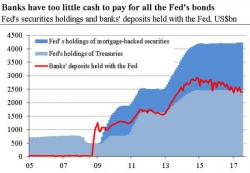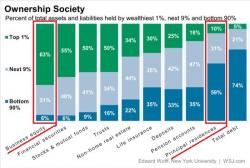BAT Is Dead: Republicans Kill Border Adjustment Tax

The Trump fiscal agenda - which these days really means tax reform - may be dead, but that does not mean it can't reemerge as a zombie every now and then. That's precisely what happened moments ago when Paul Ryan just announced that after months of speculation whether border adjustment tax will or won't be implemented to help offset Trump's proposed tax cuts, it is now officially dead.
- RYAN IS SAID TO BE TELLING REPUBLICANS BORDER TAX IS DEAD: BBG
As Reuters adds:



